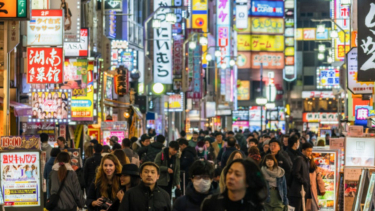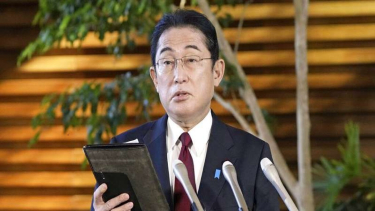Japan Spends IDR371 Trillion Amid Concerns Over Shrinking Population
- Freepik/tzido
VIVA – The government of Japan on Thursday announced the steps to handle over shrinking population or birth rate decline for a seventh consecutive year. It is said that Tokyo will spend 3.5 trillion yen (US$25.2 billion or IDR 370 trillion). This aims to support the young people financially to have children.
Decreasing the birth rate is a hot topic in Japan, as citizens, especially young people don't want to have children.
Parents will be entitled to a monthly allowance of about 15,000 Yen, about US$107 or IDR 1.5 million for each child from newborn to age two. There will then be 10,000 yen for children aged three and above, with coverage extended to include children in high school.
According to the draft, the state will no longer use household income as a criterion in providing allowances to parents. Even, the government also plans to open kindergartens or daycare centers for children, even if their parents are unemployed.
Ilustrasi penduduk Jepang.
- U-Report
It will raise the childcare leave allowance, starting in the fiscal year 2025, so that family income remains unchanged for up to four weeks even when both parents take leave.
The measures also include increasing paid maternity leave and subsidizing fertility treatments.
Figures show that annual births in Japan last year fell below 800,000 for the first time in the country of 125 million. It has met the new decline benchmark eight years earlier than expected.
Prime Minister of Japan Fumio Kishida, who announced the plan in March, said he was proposing "policies to address the decline in the birthrate on an unprecedented scale" and seeking to boost incomes for the child-rearing generation.
Perdana Menteri (PM) Jepang Fumio Kishida
- Kyodo News via AP
"We will move forward with these measures to counter the decline in the birth rate without asking society to bear a further burden," he told a group of ministers, experts, and business leaders.
Japan has the second-oldest population in the world after Monaco, and relatively strict immigration rules mean it faces a limited labor shortage.
The survey shows that more than 9 in 10 Japanese companies feel a sense of crisis about the accelerating decline in the birth rate. Meanwhile, the cost of caring for the elderly is soaring.
The Kishida government has faced criticism over a perceived failure to identify funding sources that don't rely on spending cuts and hopes for economic improvement.






























